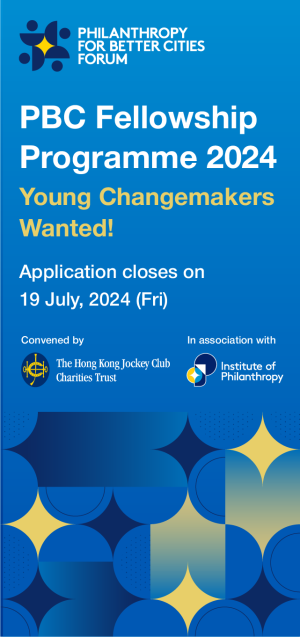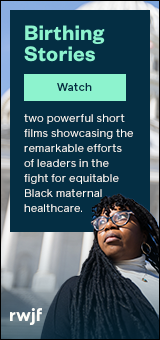Everywhere we look, it seems there is an unprecedented crisis. While communities across the globe grapple with disparate crises, there is a thread that links them all: money. Our global economic and financial systems are geared toward profit and extraction, and they are destroying the life-sustaining ecosystems upon which humans and all other forms of life depend.
Is there an alternative? In a financially healthy world, we believe money would flow in service of people and the planet. Economic and financial systems would be life-sustaining ecosystems, bolster collaboration, and safeguard and regenerate ecological and human diversity.
Over the past decade, we have worked with civil society leaders all over the world to build capacity for financial resilience in organizations and movements leading the way towards a better world. Through this work, we have come to understand that creating a more financially healthy world requires a radical reset. That is to say, to change course and avoid collapse, we must achieve collective financial health.
Philanthropy and development aid only exist because of centuries of wealth concentration and natural resource depletion, including dispossessing Indigenous Peoples of their lands and exploiting the labor of low-income workers, all of which is still occurring. Civil society organizations, networks, and movements striving to improve social outcomes find themselves in a place where justice must be achieved with the proceeds of injustice. Acknowledging this reality, one wonders, what could the role of philanthropy and development aid be in fostering collective and global financial health? We see huge transformational potential.
There are three fundamental principles to our collective financial health approach: redistribution and repair, reciprocity, and reconciliation. The principle of redistribution and repair requires that we disperse resources more equitably to disrupt and repair damages done; reciprocity asks that funders and movements invest time to truly connect and understand one another; reconciliation suggests that those participating in this ecosystem share the story of money and the people impacted by it, in the past and today, and take actions for equity and the closing of gaps.
The current approaches of large foundations such as the Ford, Rockefeller and MacArthur Foundations, whose endowments come from the accumulated wealth of U.S. business magnates, are examples of a redistributive approach. Money generated from oil and gas, automobile sales, insurance, real estate, and other capitalist ventures has been invested and is now granted to organizations, networks and movements globally. Reportedly, Henry Ford’s grandson (who headed the Ford Motor Company for over thirty years) was critical that the foundation — ‘a creature of capitalism’, made possible by the ‘dividends of a competitive enterprise’ — strayed from its free market roots by supporting organizations that promote an anti-capitalist agenda (e.g., environmental organizations, labor unions, human rights organizations).
The second principle that underpins this approach is that financial health derives from relations of reciprocity. With reciprocity, grantors and grantees engage in mutual and equal exchange. The dichotomy of ‘us and them’ in philanthropy and development aid is outdated and unhelpful. Holding the purse strings gives funders a certain power, yet the experience and expertise of civil society are vital and impressive. At a very practical level, this means that grant managers need training and (un)learning opportunities just as much as grantees do. Mission-aligned impact will be achieved by growing and learning together and establishing new relationships.
Finally, the third principle is reconciliation, which refers to understanding the story of money and committing to redress the injustices produced by historical structures, actions and beliefs. Through reconciliation, both grantees and grantors liberate money from its exploitative past and put all of it to work for justice and life sustaining societies, including how it is invested. It is about being part of a collective healing process, and from there co-creating the future.
Illustrative here is the $14.5 billion in largely unrestricted grants given by Mackenzie Scott to over 1,500 groups since 2019 in line with her pledge to distribute all of her wealth in her lifetime. In March 2022, FRIDA – The Young Feminist Fund was the recipient of $10 million. While they happily and humbly accepted the funds, they also addressed the ‘elephant in the room‘, which is that the source of MacKenzie Scott’s wealth is one of the most exploitative companies in the world.
FRIDA, who both accepts and awards funds, is in pursuit of reconciliation. Philanthropy cannot rectify inequality, however, dispersing largely unrestricted funding to groups working on systemic issues facilitates challenging the very structures that allowed individuals to accumulate vast sums of wealth in the first place, including historic and ongoing harm. Donor accountability to civil society is an act of reconciliation.
The capitalist narrative of growth and development centers on money — extracting, producing, and accumulating. It has produced extreme inequities, climate crisis and immense suffering. By recognizing the deep interconnectedness and relationality in the world however, a different narrative can emerge. This new story describes money as akin to mycelium — the root-like structure of fungal threads that can develop from a single spore to span thousands of acres, in a symbiotic relationship with trees, plants and all living beings.
The collective financial health approach invites us to think differently about the resources needed for social and climate justice work. It includes the creation of regenerative business models, where ecological restoration and diversity is as important as compensation. In this approach finances are not just a means to an end, but a radical lever in the story of humanity. The collective financial health journey requires unlearning and relearning on all sides — new mindsets and new practices. Moreover, it requires us to look below the surface, to recognize the network of connections linking all of our fates.
Ellen Sprenger is the founder and co-executive officer of Spring. Monica Aleman is Ford Foundation’s International Program Director for Gender, Racial, and Ethnic Justice International (GREJ-I).







Comments (0)